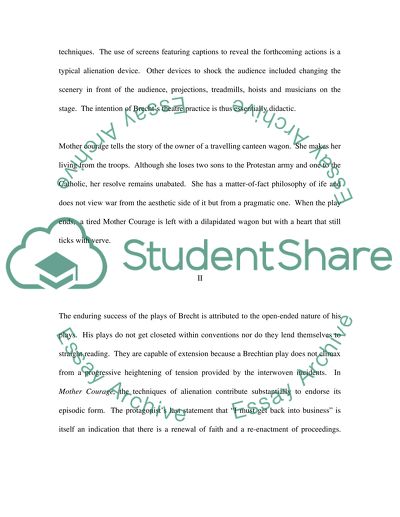Cite this document
(“Mother Courage and Her Children by Bertolt Brecht Book Report/Review”, n.d.)
Mother Courage and Her Children by Bertolt Brecht Book Report/Review. Retrieved from https://studentshare.org/literature/1515451-mother-courage-and-her-children-by-bertolt-brecht
Mother Courage and Her Children by Bertolt Brecht Book Report/Review. Retrieved from https://studentshare.org/literature/1515451-mother-courage-and-her-children-by-bertolt-brecht
(Mother Courage and Her Children by Bertolt Brecht Book Report/Review)
Mother Courage and Her Children by Bertolt Brecht Book Report/Review. https://studentshare.org/literature/1515451-mother-courage-and-her-children-by-bertolt-brecht.
Mother Courage and Her Children by Bertolt Brecht Book Report/Review. https://studentshare.org/literature/1515451-mother-courage-and-her-children-by-bertolt-brecht.
“Mother Courage and Her Children by Bertolt Brecht Book Report/Review”, n.d. https://studentshare.org/literature/1515451-mother-courage-and-her-children-by-bertolt-brecht.


